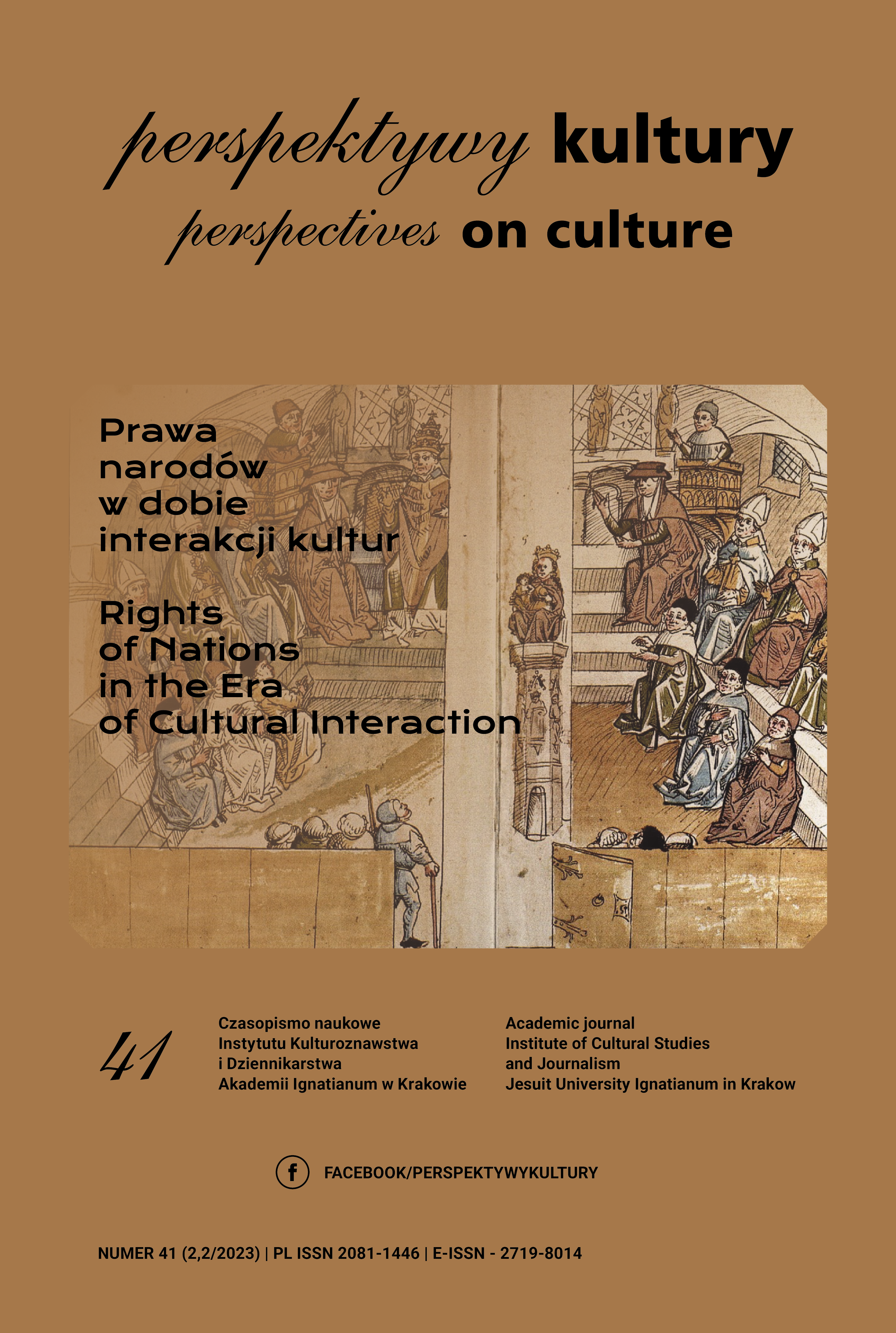Cultural Rights in the Cantonal and Federal Constitutions of the Swiss Confederation
Abstract
This article aims to confront the elements of cultural rights contained in the constitution of the Swiss Confederation and in the constitutions of the 26 cantons that make up this state, with the codification of cultural rights collected in the so-called Fribourg Declaration of 2007. Although some cultural rights are found in the above-mentioned constitutions, it is rather in a fragmentary and dispersed form. On the other hand, the level of realization of cultural rights in Switzerland is very high. Thus, sensitivity to diversity, respect for otherness, and the effort of shaping one’s identity or getting to know other cultures are values that mature over long periods and cannot be decreed.
References
Coray, R. (2004). Minderheitenschutz und Beziehungspflege: die zweite revision des Sprachenartikels (1985–1996). W: J. Widmer, R. Coray, D. Acklin Muji i E. Godel, Die Schweizer Sprachenvielfalt im öffentli-chen Dyskurs. Eine sozialhistorische Analyse der Transformation der Sprachenordnung von 1848 bis 2000. Berne: Peter Lang SA, Editions scientifiques européenes.
Cultural Rights. Fribourg Declaration (2007). Pozyskano z: http://hrlibrary.umn.edu/instree/Fribourg%20Declaration.pdf (dostęp: 01.09.2022).
Florkowska-Frančić, H. (2004). Trudny sukces małej grupy: perspektywa historyczna i stan obecny. Przegląd Polonijny, z. 4(114), 21–34.
Kania, M. (2014). Prawa człowieka i prawa kulturowe. Zarys problematy-ki. W: K. Derwich i M. Kania (red.), Prawa człowieka w Ameryce Ła-cińskiej. Teoria i praktyka. Kraków: Wydawnictwo Uniwersytetu Ja-giellońskiego.
Legutko, R. (1993). Słowa, które nami rządzą. Rozmowa Marcina Mellera z prof. Ryszardem Legutką. Rzeczpospolita, 4–5 IX.
Powszechna Deklaracja UNESCO o Różnorodności Kulturowej. Pozyskano z: https://www.unesco.pl/fileadmin/user_upload/pdf/Powszechna_Dekl_o_roznorodnosci.pdf (dostęp: 30.10.2022).
Przybyszewski, K. (2010). Prawa człowieka w kontekstach kulturowych. W: Pisma filozoficzne, t. CXVI. Poznań: Wydawnictwo Naukowe Wy-działu Filozoficznego, Uniwersytet im. Adama Mickiewicza.
Ratzinger J. (2004). Pozyskano z: http://www.kath-akademie-bayern.de/tl_files/Kath_Akademie_Bayern/Veroeffentlichungen/zur_debatte/pdf/2004/2004_01_habermas.pdf (dostęp: 10.08.2022).
Sutter, A. (2001). Ausgleich statt Anerkennung. Zur Begründung von Son-derrechten für Angehörige kultureller Minderheiten. Pozyskano z: https://www.humanrights.ch/de/menschenrechte-themen/minderheitenrech-te/begriffe/minderheitenrechte-ethnisierung-identitaetspolitik (dostęp: 28.10.2022).
Szlachta, B. (2016). Problem of cultural rights. Politeja, nr 44, 7–16.
Verfassungentwurf nach der zweiten Lesung (2022). Canton du Valais. Pozyskano z: https://www.vs.ch/documents/3914032/17030238/VERFASSUNGSRAT_Entwurf+nach+2.+Lesung+%28Oktober+2022%29.pdf/d1f47c8a-8714-ae61-99a7-8fe08e88a519?t=1666943473601&v=1.0 (dostęp: 07.11.2022)
Copyright (c) 2023 Jesuit University Ignatianum in Krakow

This work is licensed under a Creative Commons Attribution 4.0 International License.
Autor, zgłaszając swój artykuł, wyraża zgodę na korzystanie przez Wydawnictwo Uniwersystet Ignatianum z utworu na następujących polach eksploatacji:
- utrwalania utworu w formie papierowej, a także na nośniku cyfrowym lub magnetycznym;
- zwielokrotnienia utworu dowolną techniką, bez ograniczenia ilości wydań i liczby egzemplarzy;
- rozpowszechniania utworu i jego zwielokrotnionych egzemplarzy na jakimkolwiek nośniku, w tym wprowadzenia do obrotu, sprzedaży, użyczenia, najmu;
- wprowadzenia utworu do pamięci komputera;
- rozpowszechniania utworu w sieciach informatycznych, w tym w sieci Internet;
- publicznego wykonania, wystawienia, wyświetlenia, odtworzenia oraz nadawania i reemitowania, a także publicznego udostępniania utworu w taki sposób, aby każdy mógł mieć do niego dostęp w miejscu i czasie przez siebie wybranym.
Wydawca zobowiązuje się szanować osobiste prawa autorskie do utworu.





